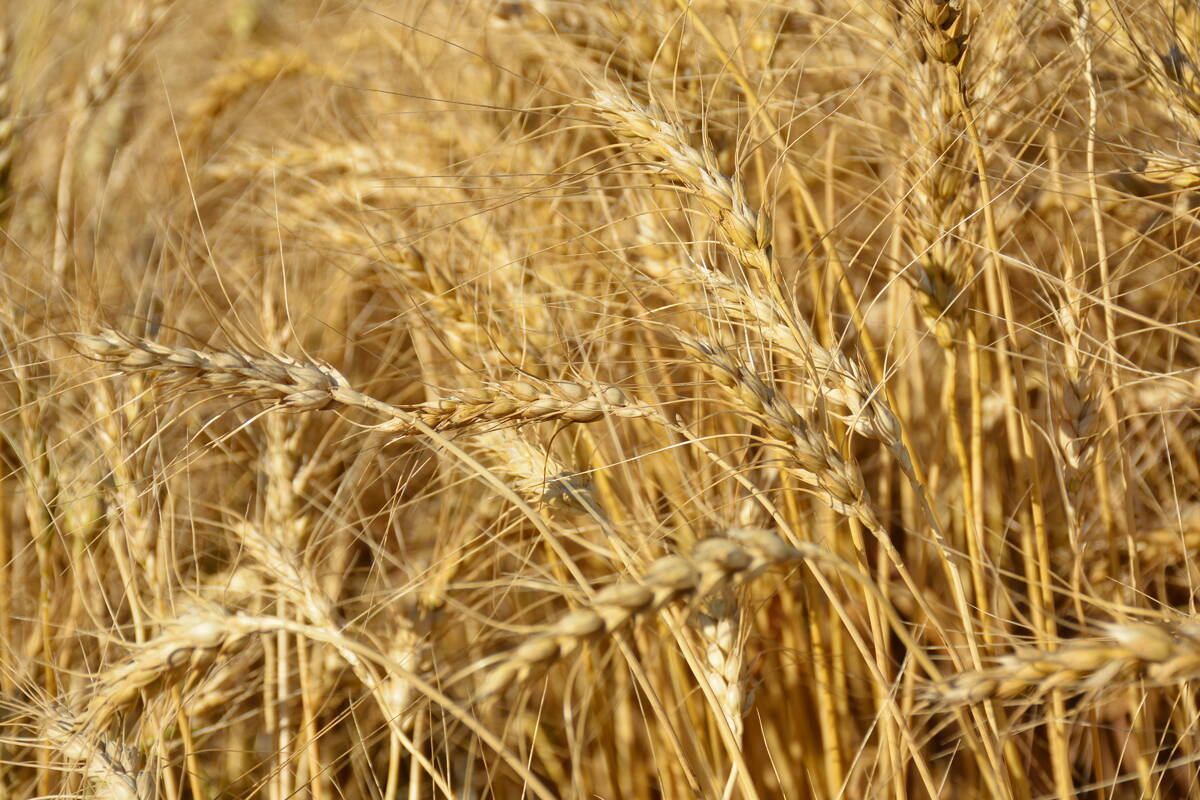A British Columbia farmer who drove his combine to Victoria and Ottawa to raise awareness of the plight of family farms is planning another Ottawa trip in his combine.
Nick Parsons of Farmington, in British Columbia’s Peace River region, said agriculture prices have deteriorated further since he completed a 6,500-kilometre combine trip to Ottawa last year.
“Things are desperate on the family farm. It’s gotten worse, not better,” said Parsons, as he took a break from drying wheat.
Almost 600 acres of Parsons’ 1,300-acre crop are still in the field. A cool, wet spring slowed development and an early snowfall halted harvest.
Read Also

Large wheat supply pressures prices
SASKATOON — World wheat prices are likely to continue falling as more bumper crops are harvested, says an analyst. Argus…
Parsons said he has managed to pay his bills over the last few years. But this year, he has joined thousands of other farmers across the Prairies who can’t afford to pay their debts.
“It’s grim,” said Parsons, who was hoping a week-long November chinook would allow him to start harvest again.
“We’ve got to get some more off to pay some more bills.”
This year’s combine trek across Canada will take at least a month longer than last year’s 53-day drive. Parsons plans to leave Farmington Jan. 10 and arrive in Ottawa on March 18, 80 days later.
He has the support of the 40,000-strong Ontario Federation of Agriculture, which is helping to organize the Ontario portion of the trip.
He’s seen as an icon, said Brian Jones, an OFA director from Midland, Ont.
Members of the 47 counties that make up the OFA all indicated support for Parsons’ latest trek during their recent convention, he said.
“They’re not much willing to take part in an organization of civil disobedience, but they want to raise awareness,” he said.
The local organizations have volunteered to provide accommodation and food for Parsons, and fuel for his combine.
Jones said local organizations told the Canadian Federation of Agriculture that they want the national body to lend support and guidance for Parsons’ trip.
Last year’s $10,000 trip was paid for by donations from farmers and businesses along the way.
During the past year, Parsons and other prairie farmers have organized the Survival of the Family Farm Society, which enables businesses to donate to a non-profit society. Money from the society will be used to lobby government to raise awareness of hard times in agriculture, he said.
Parsons has also asked the government to end existing farm programs and replace them with government support prices.
He suggested canola would need a $7.50 per bushel government top up to bring it back to 1995-96 price levels. Feed barley would need a $3 government top-up, and feed wheat would need $5 per bushel.
“I don’t want programs, I want a guaranteed support price,” said Parsons, who expects solid farm support for his trip.
“I shall have every grain farmer from here to Ottawa behind me.”














